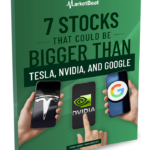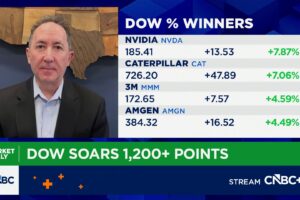<p class="canvas-atom canvas-text Mb(1.0em) Mb(0)–sm Mt(0.8em)–sm" type="text" content="Legal marijuana has more or less been anointed as the next-big-thing investment on Wall Street. After worldwide sales came in at just under $11 billion in 2018, various Wall Street firms have called for anywhere from $50 billion to $200 billion in global annual sales in roughly a decade’s time. Regardless of the estimate you prefer, the point is that the industry should be growing at a double-digit average annual rate for some time to come.” data-reactid=”11″>Legal marijuana has more or less been anointed as the next-big-thing investment on Wall Street. After worldwide sales came in at just under $11 billion in 2018, various Wall Street firms have called for anywhere from $50 billion to $200 billion in global annual sales in roughly a decade’s time. Regardless of the estimate you prefer, the point is that the industry should be growing at a double-digit average annual rate for some time to come.
<p class="canvas-atom canvas-text Mb(1.0em) Mb(0)–sm Mt(0.8em)–sm" type="text" content="That makes marijuana stocks a hot commodity — and none has been arguably gravitated to more than Edmonton-based Aurora Cannabis (NYSE: ACB).” data-reactid=”12″>That makes marijuana stocks a hot commodity — and none has been arguably gravitated to more than Edmonton-based Aurora Cannabis (NYSE: ACB).


Image source: Getty Images.
<h2 class="canvas-atom canvas-text Mb(1.0em) Mb(0)–sm Mt(0.8em)–sm" type="text" content="Investors have flocked to this popular cannabis stock ” data-reactid=”25″>Investors have flocked to this popular cannabis stock
Aurora Cannabis is currently the most-held stock on online investing app Robinhood, which is used by approximately 6 million people but is especially popular with millennials, a generation seen as fueling sales growth for the cannabis industry. These investors are likely attracted to Aurora Cannabis for three reasons.
<p class="canvas-atom canvas-text Mb(1.0em) Mb(0)–sm Mt(0.8em)–sm" type="text" content="First, Aurora looks to be the clear production leader. As of the end of March, the company was already producing at least 150,000 kilos on an annual run rate basis, but had forecast that by the end of fiscal 2020 (June 30, 2020) it would be producing at least 625,000 kilos annually. With the exception of Canopy Growth, and perhaps Flowr Corp., which should benefit from its purchase of Holigen and its outdoor grow farm in Portugal, no other global producers are anywhere near Aurora’s output level.” data-reactid=”27″>First, Aurora looks to be the clear production leader. As of the end of March, the company was already producing at least 150,000 kilos on an annual run rate basis, but had forecast that by the end of fiscal 2020 (June 30, 2020) it would be producing at least 625,000 kilos annually. With the exception of Canopy Growth, and perhaps Flowr Corp., which should benefit from its purchase of Holigen and its outdoor grow farm in Portugal, no other global producers are anywhere near Aurora’s output level.
<p class="canvas-atom canvas-text Mb(1.0em) Mb(0)–sm Mt(0.8em)–sm" type="text" content="Secondly, investors have come to appreciate Aurora’s push into overseas markets. Including Canada, the company has a presence in 25 countries, which is far and away more than its peers, many of which operate in less than a dozen countries (with the exception of Canopy Growth and Tilray). These international outlets should be particularly worthwhile if and when the domestic Canadian market sees dried flower overwhelm supply. Rather than have its margins decimated, Aurora will have a means by which to export any excess dried flower or derivatives (i.e., edibles, infused beverages, topicals, vapes, and tinctures).” data-reactid=”28″>Secondly, investors have come to appreciate Aurora’s push into overseas markets. Including Canada, the company has a presence in 25 countries, which is far and away more than its peers, many of which operate in less than a dozen countries (with the exception of Canopy Growth and Tilray). These international outlets should be particularly worthwhile if and when the domestic Canadian market sees dried flower overwhelm supply. Rather than have its margins decimated, Aurora will have a means by which to export any excess dried flower or derivatives (i.e., edibles, infused beverages, topicals, vapes, and tinctures).
Third, a strong case could be made that investor biases are coming into play given Aurora’s low share price point. At a little more than $6 per share over this past weekend, there’s the perception that Aurora is very affordable, although it has more than 1 billion shares outstanding, giving it an already large $6-plus billion market cap.


Image source: Getty Images.
<h2 class="canvas-atom canvas-text Mb(1.0em) Mb(0)–sm Mt(0.8em)–sm" type="text" content="Aurora lacks a brand-name partnership ” data-reactid=”46″>Aurora lacks a brand-name partnership
<p class="canvas-atom canvas-text Mb(1.0em) Mb(0)–sm Mt(0.8em)–sm" type="text" content="However, one thing Aurora does not have, which has surprised a lot of its own shareholders and those folks on Wall Street, is a brand-name partner. The company has watched as peers like Canopy Growth have secured a $4 billion equity investment from Corona and Modelo beer maker Constellation Brands, and Cronos Group netted a $1.8 billion equity investment from tobacco giant Altria. Even Tilray struck partnerships with Anheuser-Busch InBev and Novartis‘ subsidiary Sandoz. All the while, Aurora has lacked that major partnership presence.” data-reactid=”47″>However, one thing Aurora does not have, which has surprised a lot of its own shareholders and those folks on Wall Street, is a brand-name partner. The company has watched as peers like Canopy Growth have secured a $4 billion equity investment from Corona and Modelo beer maker Constellation Brands, and Cronos Group netted a $1.8 billion equity investment from tobacco giant Altria. Even Tilray struck partnerships with Anheuser-Busch InBev and Novartis‘ subsidiary Sandoz. All the while, Aurora has lacked that major partnership presence.
<p class="canvas-atom canvas-text Mb(1.0em) Mb(0)–sm Mt(0.8em)–sm" type="text" content="Some people expected a brand-name partnership would have been announced by now, given that Aurora hired billionaire activist investor Nelson Peltz as a strategic advisor back in March. Peltz, who helped found Trian Fund Management, has a rich history of attempting to create shareholder value within the food and beverage industry through companies such as PepsiCo and Mondelez International. That makes him the perfect bridge between Aurora, the kingpin of producers, and traditionally slower-growth snack and beverage brands looking to supercharge their growth prospects.” data-reactid=”48″>Some people expected a brand-name partnership would have been announced by now, given that Aurora hired billionaire activist investor Nelson Peltz as a strategic advisor back in March. Peltz, who helped found Trian Fund Management, has a rich history of attempting to create shareholder value within the food and beverage industry through companies such as PepsiCo and Mondelez International. That makes him the perfect bridge between Aurora, the kingpin of producers, and traditionally slower-growth snack and beverage brands looking to supercharge their growth prospects.
<p class="canvas-atom canvas-text Mb(1.0em) Mb(0)–sm Mt(0.8em)–sm" type="text" content="Aurora reportedly had discussions with Coca-Cola last September about a possible partnership or equity investment, but nothing ever materialized.” data-reactid=”49″>Aurora reportedly had discussions with Coca-Cola last September about a possible partnership or equity investment, but nothing ever materialized.
<p class="canvas-atom canvas-text Mb(1.0em) Mb(0)–sm Mt(0.8em)–sm" type="text" content="To date, the biggest "deal" Aurora has earned is being chosen as one of four supply partners for PAX Labs’ Era device.” data-reactid=”50″>To date, the biggest “deal” Aurora has earned is being chosen as one of four supply partners for PAX Labs’ Era device.


Image source: Getty Images.
<h2 class="canvas-atom canvas-text Mb(1.0em) Mb(0)–sm Mt(0.8em)–sm" type="text" content="This research partnership is more valuable than you might realize ” data-reactid=”63″>This research partnership is more valuable than you might realize
However, last Wednesday, July 24, it was announced that mixed martial arts company Ultimate Fighting Championship (UFC) would be partnering with Aurora on a groundbreaking cannabidiol (CBD) study — CBD being the popular cannabinoid that doesn’t get a user high, but is known for its perceived medical benefits.
According to the announcement, Aurora and UFC will be teaming up to study how CBD could be used to treat conditions that include pain, inflammation, wound healing, and recovery for mixed martial arts athletes. Interestingly, CBD is allowed under U.S. Anti-Doping Agency and World Anti-Doping Agency regulations, meaning it’s legal for athletes in the UFC to use. However, UFC wants to demonstrate that it’s on the leading edge of innovation as to whether or not CBD is beneficial to athletes.
The clinical study, which will be voluntary for UFC athletes, will take place at the UFC Performance Institute in Las Vegas. The chair of Aurora’s Global Scientific Oversight Committee, Dr. Jason Dyck, and Aurora’s VP of global research and medical affairs, Dr. Kelly Narine, will work with UFC sports performance experts on the study.
<p class="canvas-atom canvas-text Mb(1.0em) Mb(0)–sm Mt(0.8em)–sm" type="text" content="Although we're not talking about Aurora Cannabis netting a cash infusion, which would certainly be welcome right now, this deal offers two benefits that might not be realized on the surface.” data-reactid=”67″>Although we’re not talking about Aurora Cannabis netting a cash infusion, which would certainly be welcome right now, this deal offers two benefits that might not be realized on the surface.


Image source: Getty Images.
For starters, even though UFC is based only in the United States, it’s the largest mixed martial arts company in the world, thereby netting Aurora Cannabis a huge platform to both educate the public on the potential benefits of CBD as well as promote the rise of cannabis and cannabinoid-based products. Remember, Aurora is predominantly focused on higher-margin derivatives and medical pot patients, so this fits right into its long-term strategy.
<p class="canvas-atom canvas-text Mb(1.0em) Mb(0)–sm Mt(0.8em)–sm" type="text" content="The other benefit is that this is one foot in the door to the lucrative U.S. market. Sure, it's not a sales deal or anything, but Aurora has yet to outline its U.S. strategy, unlike a number of its peers. By partnering with a major sports brand like UFC, Aurora is firmly putting its foot down on U.S. soil and announcing its intention to educate, and eventually infiltrate, the U.S. marketplace.” data-reactid=”81″>The other benefit is that this is one foot in the door to the lucrative U.S. market. Sure, it’s not a sales deal or anything, but Aurora has yet to outline its U.S. strategy, unlike a number of its peers. By partnering with a major sports brand like UFC, Aurora is firmly putting its foot down on U.S. soil and announcing its intention to educate, and eventually infiltrate, the U.S. marketplace.
Understandably, this is just one step forward in what looks to be a marathon for legal cannabis stocks, but it’s a big one for Aurora Cannabis.
<p class="canvas-atom canvas-text Mb(1.0em) Mb(0)–sm Mt(0.8em)–sm" type="text" content=" More From The Motley Fool ” data-reactid=”83″> More From The Motley Fool
<p class="canvas-atom canvas-text Mb(1.0em) Mb(0)–sm Mt(0.8em)–sm" type="text" content="Sean Williams has no position in any of the stocks mentioned. The Motley Fool recommends Anheuser-Busch InBev NV and Constellation Brands. The Motley Fool has a disclosure policy.” data-reactid=”88″>Sean Williams has no position in any of the stocks mentioned. The Motley Fool recommends Anheuser-Busch InBev NV and Constellation Brands. The Motley Fool has a disclosure policy.








